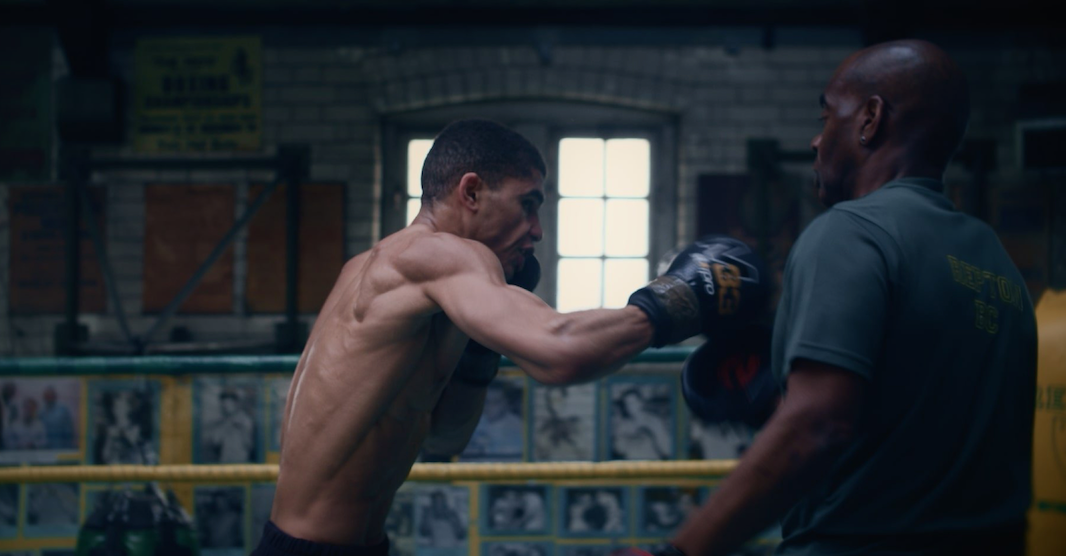
Q&A with Gabriel Passelle
Share
Balancing Life, Training, and the Path to Becoming a World Champion
We recently caught up with Gabriel Passelle, a Champion boxer and model, to discuss how he balances his demanding training schedule, stays motivated, and takes care of his gear. In this candid interview, Gabriel shares insights into his lifestyle, his approach to training, and his long-term goals in the sport.
1. As a successful model and fighter, how do you balance your training regimen with your other commitments?
Balancing my training, rest, and recovery is crucial, but it’s definitely a challenge. I’m still learning how to do it effectively so I can train as hard as I need for fights while maintaining other commitments. The key is to plan ahead, stay organised, and make sure I’m getting enough sleep and recovery. Finding the right balance is always a work in progress, but I make it a priority.
2. What strategies do you employ to manage your time effectively?
I keep things simple. I always ask myself, "What works?" and focus on simplifying tasks wherever I can. Meal prepping in advance is a huge time-saver, ensuring I have healthy, ready-to-eat meals after training. I also break tasks down into what’s absolutely necessary and what I might be able to skip. If I find a strategy that works, I stick with it.
3. Being a plant-based athlete, what are the key nutritional aspects you focus on to fuel your intense training sessions and maintain peak performance?
Since adopting a plant-based diet, I’ve noticed an improvement in my performance. The most important thing for me is maintaining a high protein intake—about 1.7–2g of protein per kilogram of body weight. I also focus on cruciferous greens, healthy carbs, fruits, and drinking plenty of water. I take the necessary multivitamins to fill any gaps, and when I stick to this plan, my performance is better than ever.
4. Do you have any specific rituals or routines to help you stay focused, particularly before fights?
I used to rely on a lot of rituals before fights, but over time I’ve adapted my mindset. Now, I focus less on external rituals like wearing ‘lucky’ socks or saying specific prayers. Instead, I remind myself that what matters most is whether I’ve done the work and am fully prepared. If something goes wrong and I can’t follow my usual routine, I need to be able to perform anyway. Now, I simply ask for strength and courage through prayer and focus on what I can control.
5. How do you stay motivated to train, particularly on days when you really don’t want to?
Motivation comes and goes, so I don’t rely on it to get things done. For me, it’s about drive and commitment—doing what I said I would do, even when I’m not feeling up to it. Some days, I’m full of energy and motivated, but on others, I may not feel like showing up. But I do anyway. I stick to my plan, fuel my body well, get my rounds in, and finish my runs. Drive is about showing up, even when motivation isn’t there. I’m driven by a deep hunger to achieve my goals.
6. What has been the most significant challenge you’ve overcome in your boxing career, and how did you develop the mental fortitude to persevere through it?
The biggest challenges I’ve faced have been losses and setbacks, both inside and outside the ring. These experiences have shaken my confidence and made me doubt myself, but I’ve learned to push through. Mental fortitude comes from consistency, even when things aren’t going your way or when others doubt you. It’s easy to stay strong when you’re winning, but true strength shows when you keep moving forward despite adversity.
7. With your impressive track record, what are your long-term aspirations in the world of boxing?
My ultimate goal is to become a world champion. That’s been my dream since I started boxing, and it remains my dream today. Along the way, I want to become the best version of myself, both in and outside of the ring.
8. Are there any specific titles or accolades you’re aiming for?
I’m solely focused on becoming a world champion. That’s my main goal, and everything I do is aimed at achieving that. The journey towards that goal will help me grow, not just as a fighter, but as a person as well.
9. As a role model for aspiring boxers, what advice would you give to young athletes who are just starting their journey in the sport?
My advice is simple: make sure you truly love the sport. Don’t do it to impress others or chase fame or money—do it because you genuinely enjoy boxing. Stay away from distractions like alcohol and drugs, as they don’t align with the demands of the sport. Be consistent in your training and always give your best. Most importantly, have fun with it.
10. What are your must-have boxing gear & accessories, and why do you think they’re essential for any boxer’s training kit?
Good-quality hand and wrist protection (like hand wraps and gloves) is essential—nothing is worse than injuries to your hands, knuckles, or wrists, as they’re your primary tools. A reliable gum shield, a head guard, comfortable boxing shoes, and a groin guard are all must-haves for safety and comfort. I also recommend a skipping rope for conditioning. And if your gloves start to smell (like mine often do), investing in a boxing glove deodoriser like Combact's Antibacterial Sports Kit Spray can be a lifesaver!
